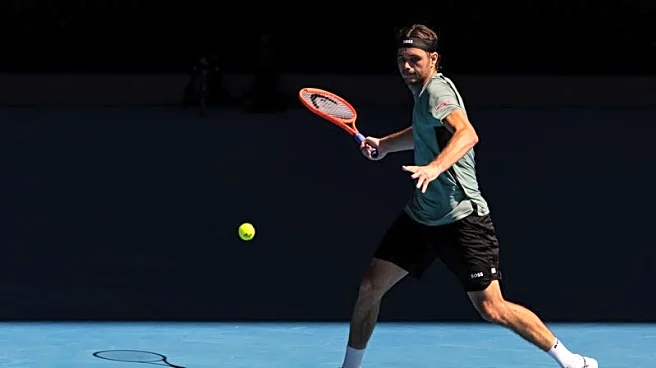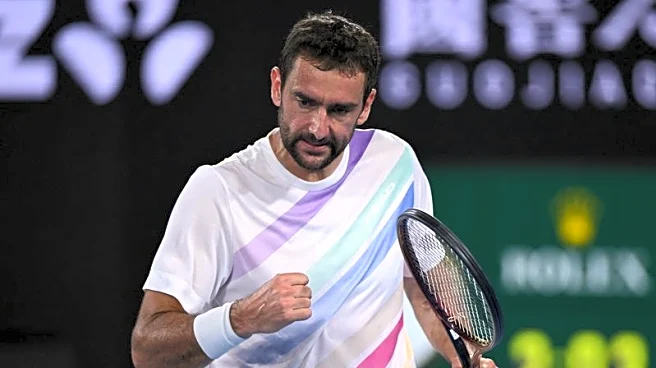What's Happening?
The Dallas Cowboys have strategically maneuvered to ensure that star edge rusher Micah Parsons does not end up with NFC East rivals, particularly the Philadelphia Eagles. In a trade with the Green Bay
Packers, the Cowboys included a condition that would require the Packers to surrender their 2028 first-round pick if Parsons is traded to an NFC East team before the end of the 2026 season. This move comes after the Eagles expressed strong interest in Parsons, offering a substantial package of draft picks. Despite the attractive offer, the Cowboys opted to trade Parsons to the Packers for two first-round picks and defensive tackle Kenny Clark. The Cowboys have also agreed to trade one of their acquired picks to the New York Jets for defensive tackle Quinnen Williams. This 'poison pill' condition in the trade is rare but not unprecedented, as similar conditions have been used in past NFL trades.
Why It's Important?
This trade condition highlights the strategic considerations NFL teams must make to maintain competitive advantage within their divisions. By preventing Parsons from joining a division rival, the Cowboys aim to protect their standing in the NFC East. The move also underscores the value placed on Parsons, who has been performing exceptionally well with 20 tackles and 6.5 sacks in eight games this season. The Packers' decision to extend Parsons' contract, making him the highest-paid non-quarterback in NFL history, further emphasizes his importance. This trade condition could influence future negotiations and strategies among NFL teams, as they seek to balance player value with divisional dynamics.
What's Next?
The Cowboys' decision to include a trade condition may set a precedent for future trades involving high-profile players. As teams look to protect their interests, similar conditions could become more common. The Packers, having invested heavily in Parsons, are unlikely to trade him soon, especially given his recent performance and record-breaking contract extension. The Cowboys' ongoing trade activities, including their deal with the Jets, suggest they are actively reshaping their roster to enhance their competitive edge. Stakeholders, including fans and analysts, will be watching closely to see how these moves impact team dynamics and performance in the coming seasons.
Beyond the Headlines
The use of trade conditions like the one implemented by the Cowboys raises questions about the ethical and strategic dimensions of player trades in professional sports. While such conditions can protect a team's competitive interests, they also limit player mobility and potential career opportunities. This development may spark discussions about the balance between team strategy and player rights, potentially influencing future negotiations and league policies.











